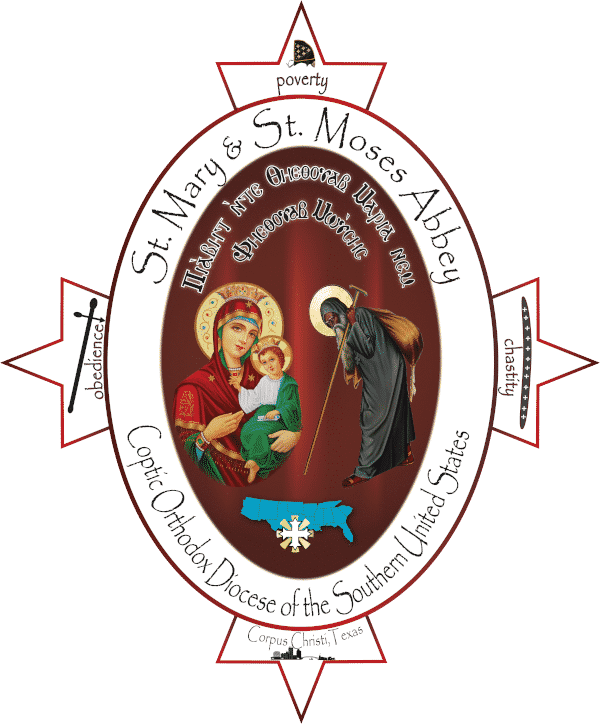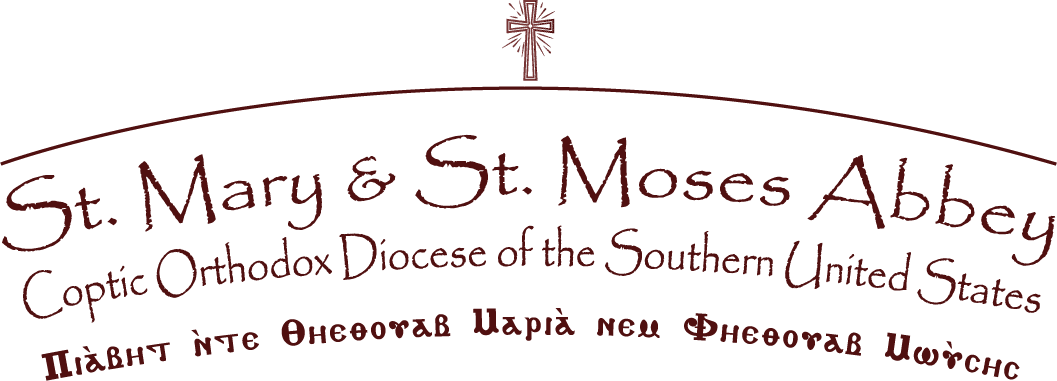“…We will give an account to God not only of deeds but even of words and thoughts. For under liberty, a man is more severely tested as to whether he will reverence, fear, and love the Lord…God desires obedience, which renders His worshippers secure—rather than sacrifices and burnt offerings, which avail men nothing towards righteousness (Irenaeus, c. 180).”
Obedience Leading to Salvation
Obedience has a direct role in salvation. This can be evidenced throughout Holy Scripture as well as ancient documentation of the many sayings of the early church fathers, which specifically address Biblical obedience. Deeply rooted into monastic life, a monk must pledge to be obedient as one of three vows necessary to enter into the ascetic way of life; the other two vows are chastity and poverty. While complete obedience is something one must constantly strive for, it is indeed understandable that this is a necessary component of ascetic life.
“Most assuredly I say to you, if anyone keeps My word, he shall never see death (John 8:51).”
The apostle John writes that obedience is essential for prayers to be acceptable to the Lord. A devout monastic should pray without ceasing, living a continual life of prayer. In order for these prayers to be acceptable and fruitful, St. John explains to us that the secret to having answered prayers (both monastic and non-monastic) is… “Whatever we ask we receive from Him, because we keep His commandments and do those things that are pleasing in His sight” (I John 3:22).
Therefore the monastic must live the life of believing in obedience not only for the salvation of his own soul but also for the prayers he prays for the faithful.
“Take heed to you and to the doctrine. Continue in them, for in doing this you will save both yourself and those who hear you” (I Timothy 4:16).
Salvation is not only necessary for the soul and prayers but it is also intertwined into the make-up of the personality of someone obedient to the Lord. It can be rightly said that those seeking a monastic way of life have become monks for one purpose and that is to attain the heavenly Kingdom. The lives of the desert fathers and in essence the monastic movement was based upon the attitude of fleeing into the desert to struggle against personal (versus worldly) darkness in order to discover the Kingdom of God that dwelt within their own hearts. To obtain this type of purity one must be obedient. St Pachomius said, “In the purity of his heart he saw the invisible God as in a mirror.”
In addition to St. John, other New Testament writers such as St. Matthew would write concerning obedience as a premise in his Holy Gospel, the words of the Lord Jesus Christ, “Not everyone who says to Me, “Lord, Lord,” shall enter into the Kingdom of Heaven, but he who does the will of My Father in Heaven” (7:21).
Perhaps ancient monasticism as an example to all worshippers base the principles of obedience on the “narrow gate,” as it is written in the gospel of St. Luke, “Strive to enter through the narrow gate, for many, I say to you, will seek to enter and will not be able” (13:24). How does one enter through the narrow gate, by being obedient?
St. Clement of Alexandria (c. 195) examines this step further by saying “It is the will of God that he who repents of his sins and is obedient to the commandments should be saved.” Monastics are in constant repentance which instills the importance of obedience as a way of life and as leading to salvation.
“For this you know, that no fornicator, unclean person, nor covetous man, who is an idolater, has any inheritance in the Kingdom of Christ, and God. Let no one deceive you with empty words” (Ephesians 5:5-6).
St. Paul would later humbly say concerning the Lord Jesus Christ, “…Behold, I have come to do Your will O God” (Hebrews 10:7). Why would St. Paul have recorded such a revelation? St. Paul made this declaration most certainly because he recognized the essential and basic role of obedience in salvation and he desired to share it with us all. St. Paul in his ministry was not the only one to allude to the role of obedience in salvation.
St. Irenaeus, bishop of Lyons, who heard St. Polycarp preaches as a young boy, further sternly, writes centuries later…“With respect to obedience and doctrine, we are not all the sons of God. Rather, it is only those who truly believe in Him and do His will. Now, those who do not believe, and do not obey His will, are sons and angels of the devil…Those who do not obey Him, being disinherited by Him, have ceased to be His sons.”
Monastic life encourages following goodness, the goodness which is a fruit of obedience. Melito, bishop of Sardis in Asia (c. 170) says within the fragments of his remaining works, “He has set before you all these things, and shows you that, if you follow after evil, you will be condemned for your evil deeds. But, if you follow goodness, you will receive from Him abundant good, together with immortal life forever.”
Obedience is essential not only to the monastic way of life, but it is a Biblical reality for the salvation of everyone. Obedience has been inherent in Christian teaching since the earliest of times. Obedience to God is the essence of the soul’s salvation.
The Old Testament Prophets including King David would write about obedience:
“Blessed is the man who has not walked in the counsel of the ungodly, and has not stood in the way of the sinners, and has not sat in the seat of the evil men. But his will is in the law of the Lord, and in His law he shall meditate day and night. He shall be like the tree which is planted by the streams of the water, which shall yield its fruit in its due season, and its leaf shall not scatter, and in everything he does he prospers…(Psalm 1)”
The great St. Anthony, founding patriarch of monasticism said, “Obedience with abstinence gives men power over wild beasts.”
As all the great writers and faithful believers from the most ancient of times, let us all strive to be obedient to the One Who calls all to salvation for the promise of the blessings to come.
Bishop Youssef
Abbot, St. Mary and St. Moses Abbey

